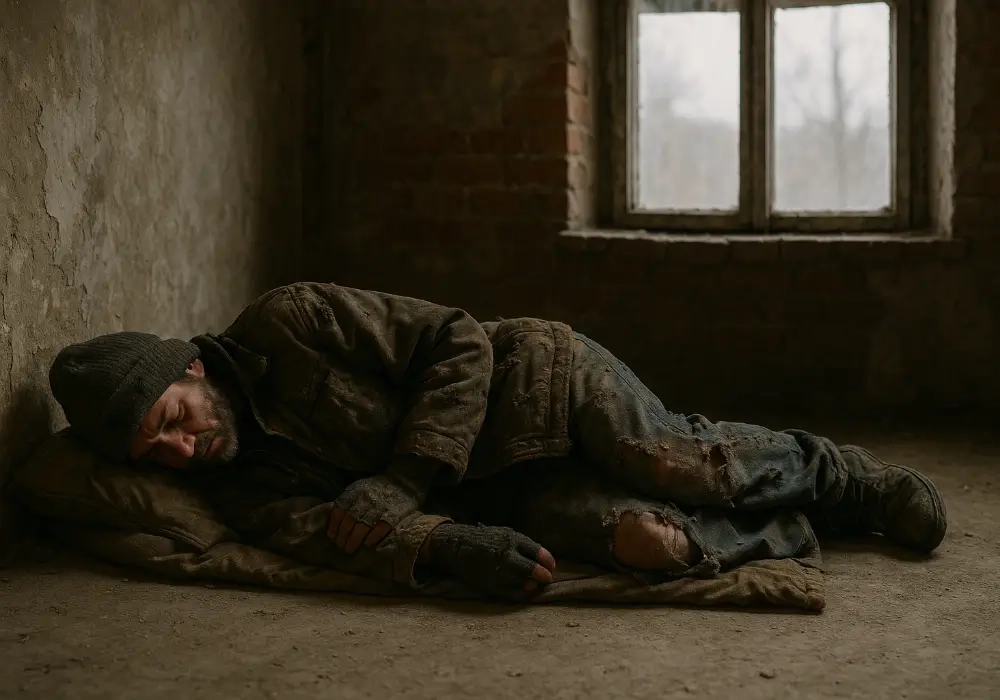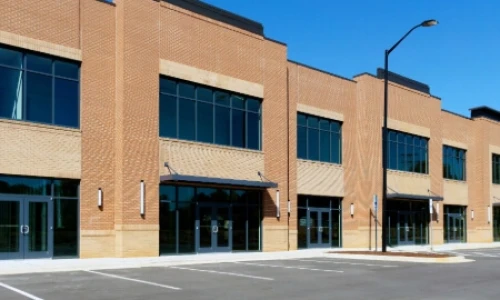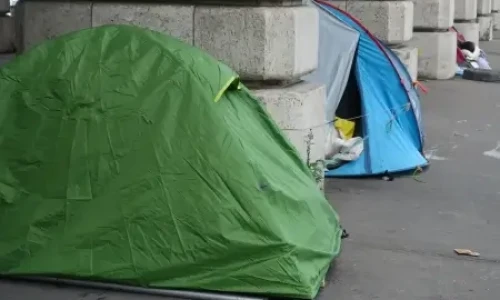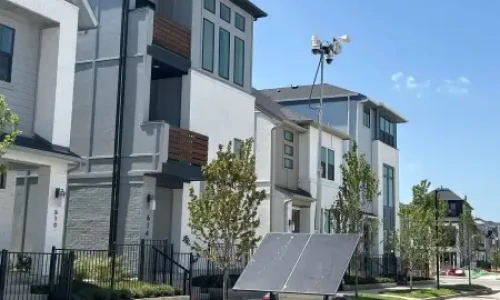Vacancy property rates have increased slightly over recent years, and with this comes a higher likelihood of squatting.
And with over 5.6 million vacant properties across the 50 largest metros in the US, the number of potential targets only grows for those individuals looking to illegally occupy them.
For property owners and managers, squatting can negatively impact both the property itself and your business, with the legal process creating even greater complexities.
We explore what squatting is, why vacant properties are common targets, and the key impacts it has.
What is Squatting?
Squatting, in the context of properties, refers to an individual or group of individuals purposefully entering and occupying a property without the owner’s permission.
Generally considered as an illegal activity in most States, it falls under the crime of trespassing, and the severity can increase depending on various factors; firstly if the individuals aim to claim the property or the property is damaged.
Whether it is a residential property or commercial building, the process for property managers and owners to resolve squatting and claim the property back must be completed through a legal process.
Why Are Vacant Properties at Risk of Squatting?
Vacant properties tend to have little to no occupants present there, making it easier for those looking to squat, to take occupation of the property with minimal chance of being stopped in their tracks.
Once within the property or building, squatters are aware that property owners will be expected to follow the legal process in order to evict them. This provides a sense of security as the process can potentially take weeks, even months to do so.
For squatters, they work on opportunity and although they could choose to occupy a property whilst a household or employees are not present, vacant properties and buildings are much easier.
This lessens the risk of Law Enforcement arriving at the scene and preventing this from taking place, and at worse arresting them for trespassing.
Vacant properties also tend to be assumed as having a lack of surveillance and having fewer maintenance checks which would trigger an alarm that individuals are illegally occupying the property or building.
This allows them to remain under the radar, all whilst increasing the daily risks your property faces.
There are various knock-on effects that can form if your property is taken over by squatting, all of which increase the daily security risks that your vacant property will face.
What Impact Does Squatting Have on Vacant Properties?
Squatting itself can appear harmless, which in some cases it could be, however, with most, there is a high risk your property will face negative impacts from such activities.
Understanding the knock-on effects of this crime helps to gain insight into the severity of squatting and support in finding the best form of defense against this.
Below we provide the 7 key impacts you should be aware of if an individual or group of individuals illegally occupy your property or building:
Property Damage
One of the biggest risks to your vacant property or building from squatting is property damage.
Vacant properties will be void of any occupants and items, meaning that there are often few means to support in the maintenance of that property.
More commonly, squatters are unlikely to have the resources to maintain the property or the incentives to do so.
This will often lead to worsening conditions as whilst the property is occupied, generally there will be more waste and other factors that will impact the state of it, and with no resources to respond to this, your property can deteriorate quickly.
Also, squatting comes with the risk of illegal activities of drug-use and arson, creating a high likelihood of property damage, especially as it is allowed to develop.
Increased Security Risks
As mentioned, other criminal activity such as drug-use is more common when squatting is taking place, particularly in vacant property.
Other crimes such as theft and gang activity also tend to increase alongside squatting as an unoccupied property or building provides the space and opportunity for individuals to engage in such activities.
Therefore, due to this, squatting in vacant properties will increase security risks to both the property or building itself, but also the surrounding community and neighbouring properties or businesses.
You could be held liable for any impacts caused by this, depending on where fault lies.
Financial Loss For Property Owners
There are various financial losses that can be caused as a knock-on effect to squatting.
Vacant properties will often deal with maintenance issues due to having no occupants and fewer checks to report maintenance issues, however, squatting is likely to only escalate this further.
From graffiti and smashed windows to broken utilities and water damage, your vacant property could be left with severe issues due to squatting.
Following the illegal occupation of an already vulnerable property type, it’s difficult for any owner or manager to access the property during that time to fix the issues. This will lead to worsening results and greater repair costs in which you will have to foot the bill for.
Financial loss will generally be created from squatting through four main avenues:
- Repairs and cleaning costs to resolve any physical damage caused from squatting
- Legal fees from the eviction process and any other costs created from the illegal occupation of your property or building
- Insurance costs and complications due to increased premiums or from fees that insurance companies may be unwilling to cover
- Lost rental costs as the property or building cannot be occupied by a household or business whilst squatting takes place
Neighbourhood Decline
With commercial and residential properties, there’s a risk that squatting impacts your property and those in the surrounding area.
Aesthetically speaking, vacant property tends to lower the visible appeal of the area and therefore lower the property value of that property and those nearby.
This can create dissatisfaction amongst communities and businesses within those areas with your as property owner and manager, leading to disputes or legal action in severe cases.
Squatting, especially across multiple vacant properties within one area may lead to future investments being impacted from developers and buyers as the neighbourhood could be deemed as neglected and unable to provide them with profit.
Health and Safety Hazards
Vacant properties, when managed correctly can minimize the health and safety issues created through the lack of occupancy, however, this is unlikely to stay the case if squatting is taking place.
Squatting often brings along the risk of unsanitary living conditions as there is unlikely to be the same care and management provided by a property management company.
Accumulated waste may lead to pest infestations, increasing the risk of disease and public safety risks.
Also, the lack of clean water or toilets could force squatters to utilize unsanitary methods that could place their health and any nearby individuals’ health at risk.
Strained Public Services
As property managers and owners, you are responsible for the care of any property or building and its safety. However, squatting can increase levels of violence and crime that lead to Law Enforcement needing to become involved to de-escalate the situation at hand.
This places a strain on public services as it pulls them away from other crime and responsibilities which could be avoided if there were no squatters present.
Law Enforcement and other Government agencies may also be required during eviction processes, some of which can take long periods of time to resolve and place them in danger.
Legal and Administration Issues
Once squatters have occupied your vacant property, removing them isn’t as simple as you think.
In most States you will be required to follow a legal process which could take weeks, months, or even longer in more complicated situations.
Attempting to evict them yourselves without any legal support could lead to further issues for you, both legally and financially. Hence why it’s important you take the correct route.
The legal process to evict squatters is as follows:
- Verify the situation and confirm there is squatting at your vacant property
- Serve a formal notice and ask them to leave voluntarily (normally takes around 3 to 30 days)
- File an unlawful detainer or eviction lawsuit if they do not leave during the notice period
- Court hearing and judgement - Squatters may attempt to claim the property themselves, so be prepared to fight against this
- If favored towards you, enforce the eviction provided by the court
- Secure the property to ensure no individuals are able to squat there in future
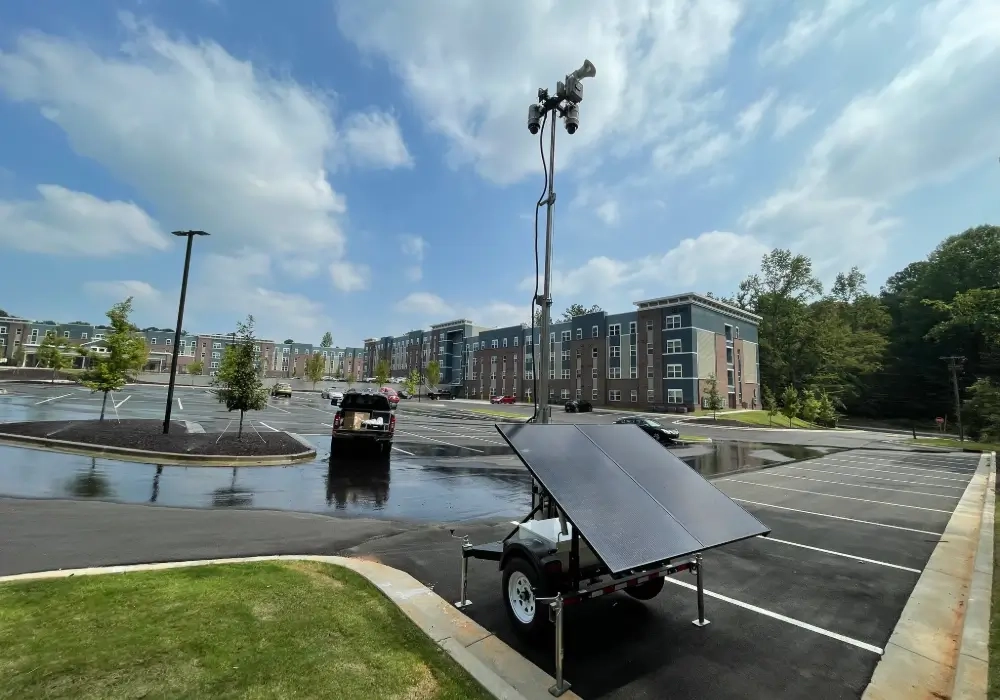
Market-Leading Mobile Surveillance For Vacant Properties
Vacant property surveillance is vital in protecting it against squatting and all the negative impacts related to this.
Mobile surveillance is generally considered to be the best form of defense for vacant properties in preventing this. However, the process of squatting will always begin on the outside of your property, so you need to ensure you have a system that covers this.
At LotGuard, we specialise in parking lot surveillance solutions and are market-leading experts in supporting issues of squatting, encampments, theft, and vandalism faced by vacant properties and buildings.
Designed to slot into one parking spot and quick-to-install, our Surveillance Trailer units provide immediate coverage to your vacant property or building that offers you both day-to-night monitoring.
Suitable for residential and commercial properties, our systems are backed by remote monitoring services that utilize trained security professionals to live monitor footage, assess threats, and respond appropriately.
For example, our advanced IR PTZ cameras may capture intruders, potentially squatters to enter the property or building, and the monitoring center watching will view this and respond promptly.
This can be through a live voice-down audio message, sirens, flashing lights, and/or calling Law Enforcement to attend the site.
Our aim is to remain proactive and reactive in our security approach, rather than retrospectively, ensuring the best prevention against squatting at your vacant property.
Interested in learning about our Surveillance Trailer?
Contents
[hide]Related news
Contact Us
Request a Quote for Surveillance Trailers to Protect Your Vacant Property
Ready to learn more about how Surveillance Traielrs can protect your Properties? Get in touch today for a free quote.

